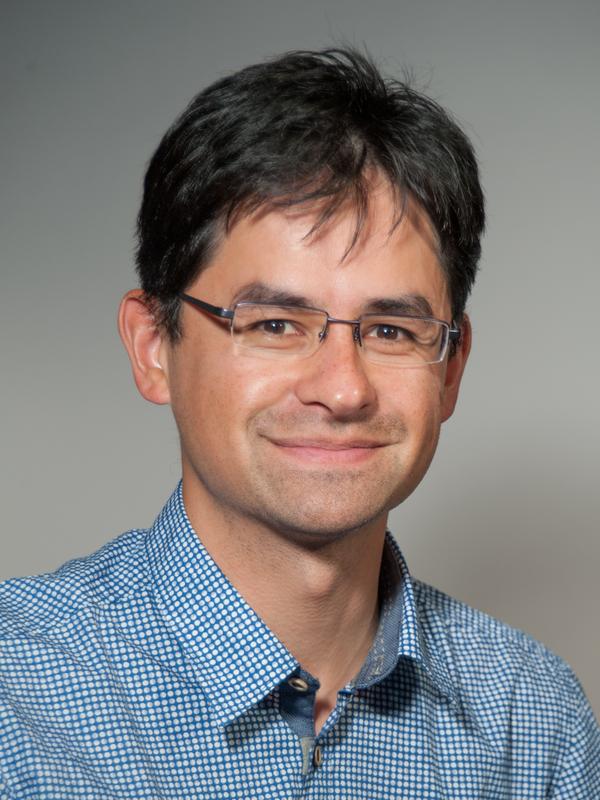Dr. Andrew G. Mark awarded with Günter Petzow Prize 2015

Dr. Andrew G. Mark, Max Planck Institute for Intelligent Systems, Stuttgart Copyright Carmen M. Müller
Up to now, it was very difficult to fabricate structures with sizes less than 100 nanometres that did not have symmetrical shapes. With this new process, three-dimensional nanostructures can be custom fabricated from various materials by vapour deposition. This has allowed researchers to produce hybrid nanoscopic structures that can be composed of materials with very diverse physical properties – metals, semiconductors, magnetic materials, and insulators.
The general technique is based on vapour deposition in high vacuum coupled with complex substrate manipulation during growth. However, unlike conventional vapour deposition schemes, this one exploits local shadowing of adjacent structures, with the shadow angles controlled by complex substrate manipulation to guide the shape of discrete structures. This technique has been used in the past to produce structured films in the micron size regime.
However, it had not been applied to the growth of colloidal nanostructures from metals because surface diffusion and stochastic nucleation limit the uniformity and fidelity of the possible structures. Andrew made significant contributions to the development of the instrumentation and techniques that allow the process to be applied to the fabrication of truly nanoscale structures, in technologically important materials, and in large quantities.
As an example of the possible applications, the researchers have produced helices of gold that function as absorbing nanoantennas for light. The colour of light that the antennas absorb can be controlled by their size and material composition.
And the asymmetrical shape of the particles can be controlled to tune their interaction with light of different polarizations. Other applications that are being pursued with the new fabrication method include shaped nanomagnets, thin films for the interaction with spin-polarized electrons, and chemical nanomotors.
Andrew G. Mark studied physics at the Queen’s University in Canada where he finished his Ph.D. thesis in 2009. After 3 years as postdoctoral fellow with Prof. Rasmita Raval at the University of Liverpool, he joined 2012 the Research Group “Micro, Nano, and Molecular Systems“ at Max Planck Institute for Intelligent Systems in Stuttgart, headed by Professor Peer Fischer.
Since 2006, the Stuttgart location of the Max Planck Institute for Intelligent Systems annually awards the Günter Petzow Prize to a young scientist from the institute for outstanding research in the field of material sciences. The prize is sponsored by the Robert Bosch GmbH and is presented every year at the Günter Petzow colloquium, the institute’s scientific colloquium. Professor Günter Petzow headed the Max Planck Institute for Metals Research (the predecessor of the Max Planck Institute for Intelligent Systems) as director between 1973 and 1994.
The Günter Petzow Colloquium and the award ceremony will take place on Friday, July 24th. It will start off with coffee at 12.30 pm. The public talks, which will mostly be held in German, commence at 1 pm. More information can be found on the Institute’s homepage under www.is.mpg.de/en_gpk2015 .
Media Contact
All latest news from the category: Awards Funding
Newest articles

Combatting disruptive ‘noise’ in quantum communication
In a significant milestone for quantum communication technology, an experiment has demonstrated how networks can be leveraged to combat disruptive ‘noise’ in quantum communications. The international effort led by researchers…

Stretchable quantum dot display
Intrinsically stretchable quantum dot-based light-emitting diodes achieved record-breaking performance. A team of South Korean scientists led by Professor KIM Dae-Hyeong of the Center for Nanoparticle Research within the Institute for…

Internet can achieve quantum speed with light saved as sound
Researchers at the University of Copenhagen’s Niels Bohr Institute have developed a new way to create quantum memory: A small drum can store data sent with light in its sonic…





















